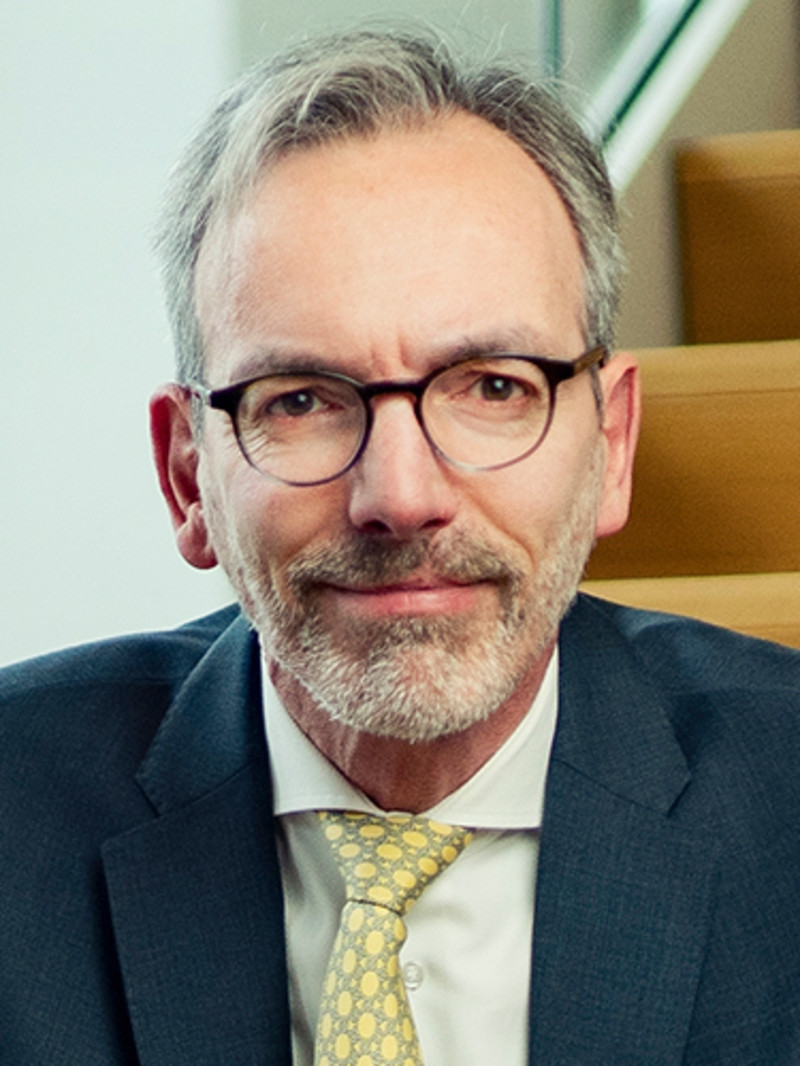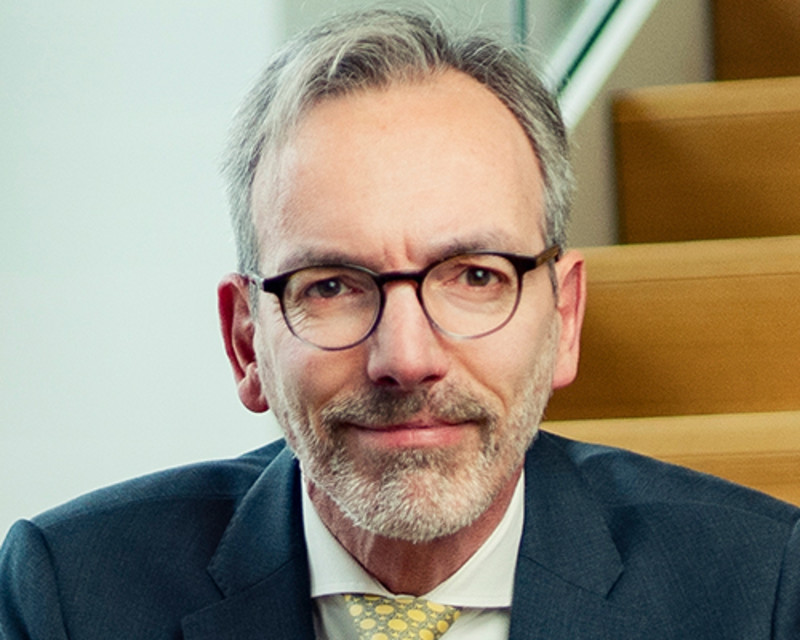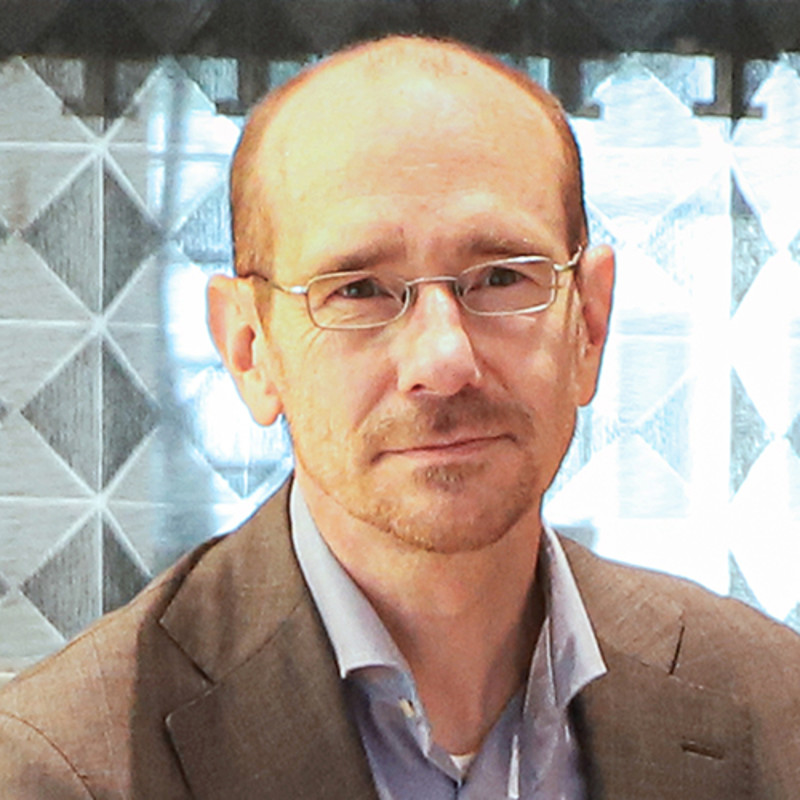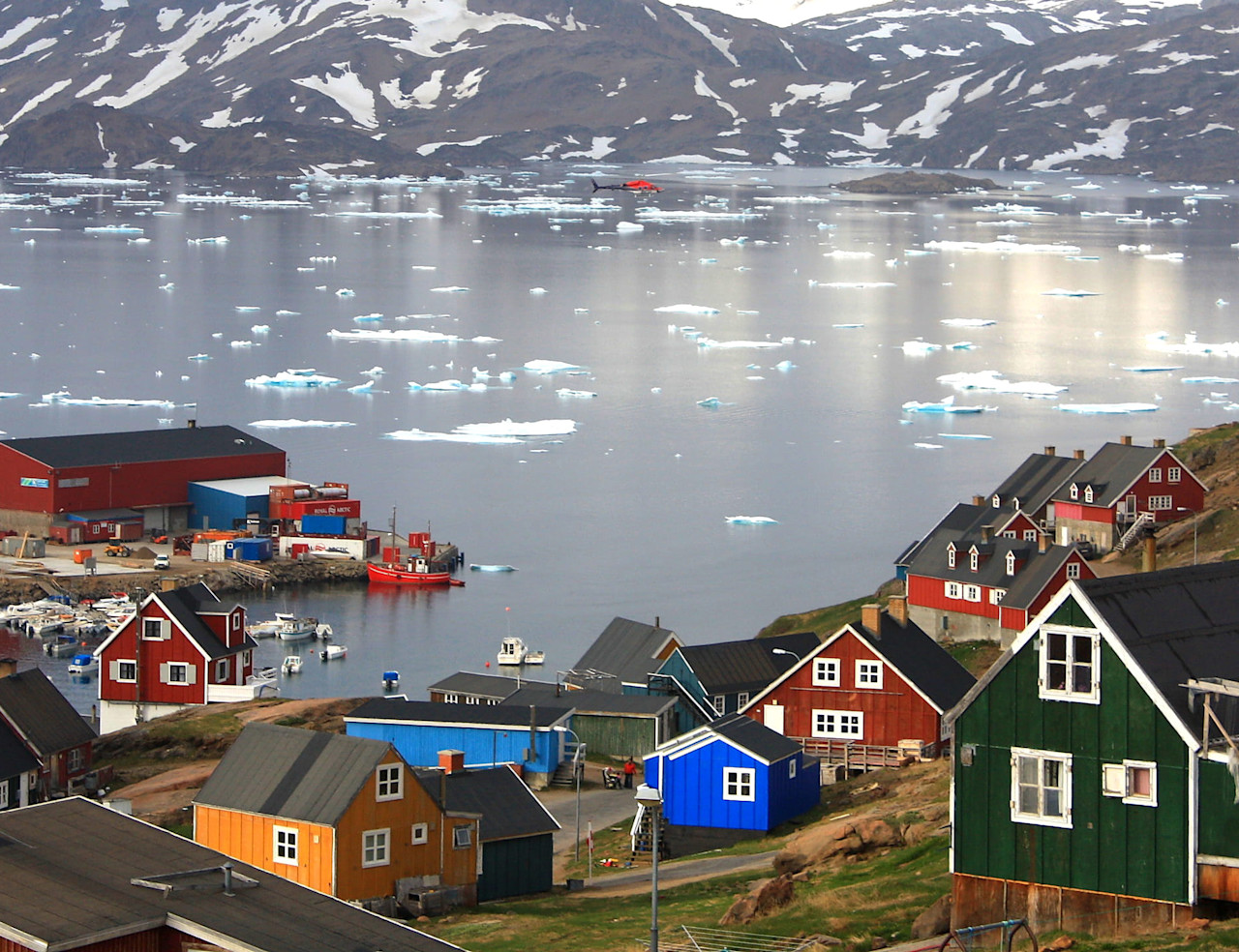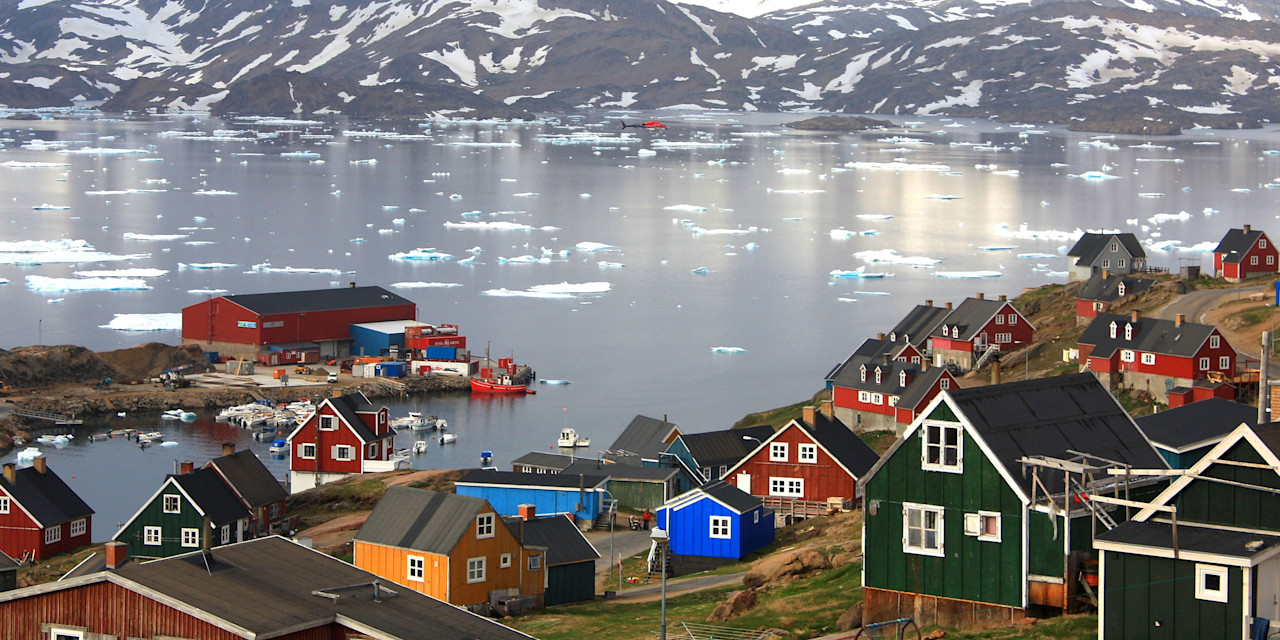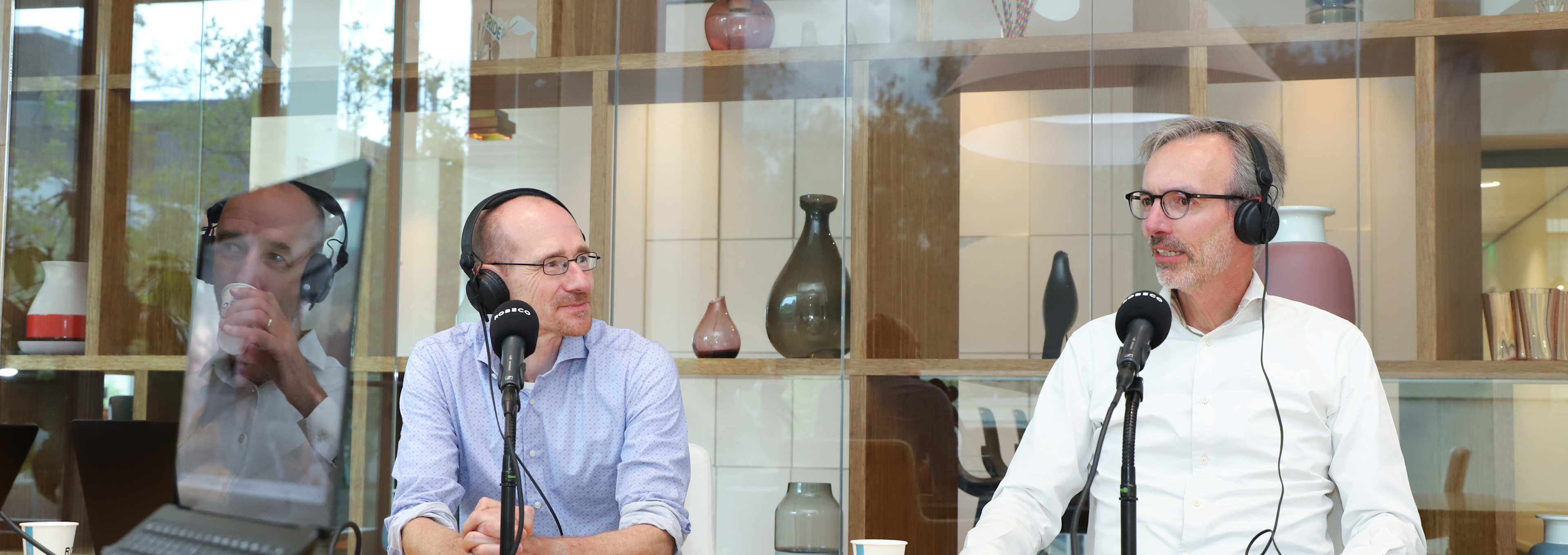

Podcast: Growth now meets value in emerging market equities
Early this year, investors were notably enthusiastic about emerging market equities. And, as the months have gone by, funds have flowed towards this asset class. While returns have been fair, investors are still waiting for the big pay-off from the emerging market bet. How patient ought investors to be, and how rewarding will that pay-off be in the end?
We discuss this with portfolio managers Wim-Hein Pals and Jaap van der Hart.
We do not guarantee the accuracy of this transcript.
This podcast is for professional investors only.
Wim-Hein Pals (WHP): So look at India, which is growing 7% annually, perhaps next couple of years as well. Vietnam grows 6% this year and probably next couple of years, Indonesia growing 5% plus. So these are the new growth drivers from an EM context in the longer-term. And we're going to have a slow growth path in China and a decelerating growth path.
Welcome to a new episode of the Robeco podcast.
Erika van der Merwe (EM): Early this year, investors were notably enthusiastic about emerging market equities. And as the months have gone by, funds have flowed towards this asset class. Now, while returns have been fair, investors are still waiting for the big payoff from the emerging market bets. So how patient ought investors to be and how rewarding will that payoff be in the end? My guests are Wim-Hein Pals and Jaap van der Hart. Wim-Heim is head of the emerging markets equity team, as well as lead portfolio manager for global emerging markets core strategy. Jaap is portfolio manager for Robeco’s high conviction emerging market equity strategies. Welcome, gentlemen. Well, you are obviously in the thick of things and all this excitement around the particular asset class. Let's just hear from you. And starting with you, Wim-Hein. What's your outlook on emerging markets? And incidentally, has it changed from early in the year?
WHP: Well, we have been more constructive since the turn of the year, basically. And the main arguments are next to the valuation, of course, which is very, very attractive these days, and also back then, also earnings. There are some pockets of emerging markets where you see earnings recovering. Of course, GDP is important, but earnings is much more important for equity investors. So it's a combination of a strong macro background, very attractive valuations and a slowly improving earnings picture. And we can talk about the improved macro situation later. But mind you, more than 70% of EM is non-China. China is in a downturn economically. The rest is not per se. So look at India, which is growing 7% annually, perhaps next couple of years as well. Vietnam grows 6% this year and probably next couple of years. Indonesia is growing 5% plus. So these are the new growth drivers from an EM context in the longer term. And we're going to have a slow growth path in China and a decelerating growth path. So that is to set the scene a little bit. You have China and you have non-China. Non-China from a mid- to long-term perspective is much more interesting than China in our opinion.
EM: So Jaap, I'm hearing there's more than China. You know, some years ago there was so much enthusiasm about that. But now we're hearing it's more nuanced than that. You know, it's a big universe. So we hear from Wim-Hein the fundamentals are looking good and we can touch on that further. But we also heard about valuations, and that's what you always hear about emerging markets. And recently I heard someone say, you know, people have always said valuations and emerging markets are attractive and they always will say so. But that doesn't mean that investors will necessarily benefit from them.
Jaap van der Hart (JH): Well, valuation is a poor timing instrument, but it does give you a good longer-term perspective on the market. And longer term, you do see conversion of valuations. At some point in time emerging markets have even traded at a premium in the early 2000s and that could come back, especially if growth turns out to be more resilient than what people expect. And there's several countries where we think there's still good growth prospects. And China, even though growth is slowing down, we're still talking about positive growth.
EM: So interwoven in all of this when we look at China is the tremendous geopolitical tension that we're seeing playing out. And it seems as though every six months or so there's a new chapter to that. But it includes the tension between the US and China, between the West and Russia. And it was, I think, reflected rather well in the recent BRICS summit and the outcomes from that. And the key observation, certainly in my opinion, and what I hear from experts, is that there's a clear drive amongst some key emerging market factions to play the global economic game by their own rules.
JH: Yeah, it's an interesting development, but we don't think there's that much similarity between all these countries except that they're not the developed world or not the West. But I think that's not sufficient basis. And I hope a country like Brazil would feel more affiliation with the US and Europe than with countries like China and, well, Saudi Arabia or Egypt, Ethiopia, that are now also joining the group. So it's good for them to have an independent voice outside of the West. But I think we should have one world instead of a factional world.
WHP: Yeah, I think we have to acknowledge – and ‘we’ being the West and the US in particular – that more economic and more political power will move to those BRICS countries and those extended BRICS countries. A country like Saudi Arabia is here to stay and will grow faster than the US in the next couple of years and perhaps next decade. And that is the reason why they are so keen on sticking together because they don't feel that they have a relevant say in the usual institutions like IMF, World Bank. That’s why they are making their own sort of alternative to the Western institutions and there's nothing wrong with that.
And again, a country like India is pretty autonomous. It is friends with the US. It is friends with China and it doesn't mingle into the domestic affairs so much in China. And that's one of the reasons why they can keep their friendly relationship with China. When we’ll talk and do this podcast in 2030, I'm pretty sure that India will be the largest emerging country in the universe. It might be larger than China in our investable universe, right? We're very positive on that one.
But geopolitics is a thing that will remain with us for the next couple of years, right? With China-US on the one hand and China-Taiwan on the other. We have elections in Taiwan in January, very interesting ones. Is it going to be the sort of pro-China candidates that will win, that will move the needle in a more positive way in that sense? So there is also room for relaxation of that geopolitical pressure we have gone through since Trump, for the last 5 or 6 years almost. We're still in there, but that's not ruining the party from an earnings perspective again. So emerging companies make earnings, they do their business. The well-managed companies in our portfolio make their operational performances and they perform on the equity market simultaneously. So that is a good combination.
JH: And maybe one thing to add, I think you can focus on the geopolitical risk obviously there. But we should also talk about benefits for economic cooperation. So the West and emerging markets and China, they still need each other, for development and we also [need them] for their product offerings.
EM: So decoupling is unrealistic, right?
JH: Yeah. Actually, that's also what you saw during the Corona years, actually. Exports from China has grown. And if you look at climate change, for example, what the world needs is more solar panels. 90% of the solar panels come from China. So there's still a huge dependency among the different economic blocs and also benefits from economic cooperation.
EM: Well, I think that's a good point at which to ask you, are there particular sectors across emerging markets? And I understand this is difficult because you look at so many different kinds of economies and regions, but are there certain sectors that are appealing to you right now? Because, of course, if you look at global markets or developed markets, the AI theme, for example, is another one of these hype/fad ideas, but still fundamentally so important.
WHP: Yeah, no, definitely. So the emerging consumer is a very important theme in our portfolio, if you wish. And they are growing from a low, relatively low income to a middle income to a higher income. So in that era they are buying consumer durables and that's exactly the sector we are very keen on and overweight.
But also IT –you refer to AI, well all the chips basically, or the main chips, are being produced in Asia, in Taiwan, in Korea. And so the whole AI theme is not possible without the Korean hardware, right? So if you don't have the high bandwidth memory, then then there is no AI. That comes from hardware companies, IT hardware companies in Korea and Taiwan, which are in our portfolio as well, and which do very well on this theme, which is a longer term theme, which is pretty sticky, right?
EM: So Jaap, your approach, you've got a more concentrated high conviction approach with the stars range. Do you have the same views as Wim-Hein on this?
JH: So we are invested in the same sectors, same countries, same stocks to a large extent where stars can be more concentrated. So we have a more focused portfolio. So what Wim-Hein says about IT and emerging consumers, we have that in stars too. And the one thing to add maybe is the banks. There, across emerging markets, banks are typically among the largest players that benefit also from economic growth and development. Often credit penetration is lower. So there we also see good opportunities and banks typically trade at attractive valuations.
EM: And so those would be traditional brick and mortar banks as well as the newer tech versions?
JH: Yes.
WHP: But also fintech is interesting theme in emerging, right? So the brick and mortar banks, but also the fintech space looks very interesting in some countries in particular in Latin America, for instance as well. You have very interesting stories to play there. And what I would like to emphasize here as well is the interest rate cuts we are already seeing in emerging markets, right?
In developed markets in the US and EU, they are still hiking rates. In emerging countries, they are lowering the rate which is also filtering through that credit demand Jaap was referring to. Credit penetration is very low, but with lower interest rates that will accelerate faster, much faster than in the developed world. And it also refers to the start of this conversation with the macro situation: Monetary easing in emerging countries, while at the same time monetary tightening in developed markets. Well, guess what has the better outlook from an equity standpoint? We think emerging [markets].
EM: Yeah.
JH: Yes, I agree. [Laughter]
EM: So looking at sustainability and I know that as emerging market portfolio managers, this is important to you as well. It's not just a developed market phenomenon. How do you interlayer that into your thinking around sectors and even around countries? Jaap?
JH: As part of the analysis that we do, it's very important for some sectors more than for the others. So anything on especially materials or resources, then of course the CO2 impact plays an important role, pollution effects. And there also you see tighter regulation within emerging markets. So that's all the negative side. But we also see companies that are leading and also have the benefit from that. So it's an important part of what we do when we analyze companies.
EM: But is it also an investment opportunity relative to, say, a global portfolio?
JH: Yeah. Well, I would say [it is] similar to a global portfolio in emerging markets, just as much. And like I mentioned, China being definitely on the forefront [of] climate change solutions like solar, they are also leading now in the electrical vehicle development. So there are several places where emerging companies are among the leading companies.
WHP: I would like to add the Korean battery makers there for the EV space. China is extremely important, but also Korea makes batteries for Ford, BMW and all the Western OEM manufacturers. So they are a crucial part in the whole supply chain in the EV transition or in the energy transition era.
EM: So just the way you're talking about the stocks, how do you go about your stock selection? Because I think your approach might be quite unusual and that you look very much from a bottom-up as well as a top-down perspective. So you don't ex-ante decide you're going to have exposure to certain countries, right?
JH: No, both are important. So the top-down is an important part of what we do, but it doesn't lead to an automatic rule. You have to invest it. So we also have to find the stocks that are attractive to invest in. So indeed, we do both top-down and bottom-up and look for the combinations where we see the best opportunities.
EM: You've mentioned China now, and we're seeing growing investor nervousness in certain regions of the world around China, with some even considering portfolios or emerging market portfolios or Asia-Pacific portfolios excluding China. Your reaction to that? Or how do you factor that into your thinking?
WPH: We think with China you have a better mix of countries and a less correlated mix of countries as well. So with China – approximately a quarter of your portfolio in China and the rest in non-China – makes a lot of sense because China these days is so unloved that it is becoming very, very attractive from a valuation standpoint. Of course, you have issues and headwinds which are geopolitical, which are property, we didn't mention that one, but there is serious issues in the property sector in China. But still, there are attractive companies within that property sector.
If you dig deep enough and you analyze them at length and in depth, you find some really interesting value opportunities in the property sector, mind you. But other than that, the Chinese consumer for the next couple of years will grow higher than the GDP growth in China. So that will outpace the GDP growth. So in that sector as well, again, in the Chinese consumer space, there's a lot of a lot of interesting alpha opportunities.
EM: What about currencies? This must be a huge factor and I'm sure that your clients speak to you about this. For example, if we see the dollar potentially weakening from here onwards, how does that factor into your thinking on country selection or stock selection?
JH: Well, for us it's mostly a country-specific element. So of course the dollar can move up or down, but that affects most markets more or less the same. And it's more of a sentiment indicator for us. The most important is in what countries do we see currency risk? And then it's part of how we look at countries. So, for example, South Africa is a country where we see worry. So we don't have, or we have very little domestic exposure, but we can still invest in those countries. But then we would focus on exporting companies or companies with businesses overseas. Actually, at the moment, given that interest rates are pretty high in emerging markets, we think there's quite some support also for a country like Brazil, the highest real rates in the world nowadays, and that has helped strengthen the currency.
EM: So you're creating portfolio construction as a natural hedge against currency risk, right?
JH: Yeah. So typically we don't hatch the currencies directly, but rather put them into our country allocation and sector allocation within countries.
EM: I think as Wim-Hein has alluded to, the emerging market story is very much a story around growth. That’s always what you see in the description about that opportunity. How do you see that playing out, if we do see a slowdown in the global economy, in developed markets? I mean, as we said, we can't decouple from one another. How does that spill over to emerging markets and the opportunities that you see?
WHP: Well, we focus more on the domestic side of the equation. So domestic India, domestic Indonesia, domestic Brazil, much more than the export companies as such. So, net-net, we are light, relatively light on the export companies in emerging, that goes across the across the globe. We believe more in the domestic growth in those large emerging countries. And there is also a very important driver in the demography, right? So demographics in India, Indonesia and other parts of the world are much more attractive than in China and the western part of the world where the Chinese population is shrinking as we speak, while the Indian population is growing pretty fast: Highly educated, speaks English, all the rest of it. [India] is much better positioned for long-term growth in our space.
JH: So structural growth in emerging markets is still above developed markets. And in addition, the equation in emerging markets is also about value, assets being undervalued. And that discount has widened versus the past. So we think there's plenty of opportunity also from a value point of view.
EM: I just want to drive that point home because both of you have now consistently spoken about value as opposed to the growth thematic or focus. So is that your tilt?
JH: Well, in our portfolio that is the tilt. But of course, growth is part of the valuation equation. So it's not just whatever looks the most cheap, it's about value. Growth is part of value. And we do see value and we see growth. So it's the perfect combination.
WPH: Value-tilted portfolios with earnings potential: That is in a nutshell our philosophy and our style.
EM: There you go. Well, we're going to change the tempo slightly. We've got a quiz for you. And so I know you're smart. You know your oats, when it comes to emerging markets. So are you ready?
JH: Sure.
WHP: Yeah.
EM: Who created the term emerging markets?
JH: That was the Dutchman. What's his name? Oh, man.
WHP: Art van Agtmael.
JH: Yes, yes.
EM: Well done. [Laughter] Jaap is looking at you with new admiration. So originally coined in 1981 by the then World Bank economist Antoine van Agtmael, who was pitching an idea to investors and needed a more appealing alternative to the term “Third World”. Next question. The MSCI Emerging Markets Index was created in 1988. How many countries are represented in this index today? And for a bonus point, how many countries were in the index when it was first launched?
JH: I think it's six or so.
EM: In back in 1988, you mean? Yes. Close, I'll tell you now. And today?
WPH: 22?
EM: Close enough. So today we're at 24 countries in the MSCI EM index and it started with ten countries. And that tells a story in its own right, the way in which it's diversified.
WHP: The dynamics.
JH: Yeah. And how the world has developed, especially in the 90s with so many markets becoming free, tradable and actually opening up.
EM: Good point. The Financial Times editorial board recently published an opinion piece, I I'm sure you saw it, entitled “Time to Retire the Emerging Markets Label”. And they had the argument that clumping the developing world together obscures economic risks and opportunities. An very interesting article worth a read. Do you agree or disagree? So I'd love to hear some discussion around that.
JH: Well, it's not really a quest, or a good answer, I guess. But not all countries develop as well as we hope they do. So, yes, it's not that all markets are emerging, but by and large, if you see how the GDP per capita – how the differences have narrowed – I think they have definitely emerged over the past decades as a group.
EM: Wim-Hein, the point that just clumping countries together that happened to fall within certain criteria isn't always helpful, but you see this from day to day that you are examining companies under this umbrella.
WHP: No, it makes a lot of sense to stick those countries together and some countries will leave the emerging class and be promoted to the developed market class, although you can question if that's a ‘promotion’. But others fell off the EM class and degraded. Looking forward, there will be countries going out and becoming too rich or having a GDP per capita which is too high for this asset class. Others will come in, countries like Vietnam. You have a lot of Latin American countries and African countries that are totally not in the benchmark yet, but which will be in the benchmark and in the not too distant.
EM: And indeed, it is wonderfully fluid. On the MSCI website, there's a great graphic that shows how over time, over a timeline, how countries have come in and exited. Now Greece is an example. It was removed from the MSCI index in 2001 and re-entered again later. In which year did Greece come back into that index?
WHP: 2018?
JH: No, I think 2010 or so after the financial crisis, not long ago.
EM: I'll meet you halfway: 2013. [Laughter] And just quickly, why those changes? Why is Greece in the emerging markets index? Let me ask that.
WHP: Yeah, it has pretty low GDP per capita and it is not so developed from a liquidity standpoint, for instance, as others and thus has a lot of upside. And we are very keen on Greece. We talked a lot about Asian countries and Latin American countries, but closer to our headquarters, Greece is one of our favorite and overweight countries in the portfolio currently. Because of the growth after the deep crisis they went through, there is a lot of growth going forward and they are actually making a lot of progress.
EM: Last question. It's a tricky one. You may be aware that Robeco has another podcast channel called In Tune with the Markets, which has a distinct musical theme. So in the vein of that show, I'm going to ask you what song – and you could each have your own song – which song do you believe best describes your views on the outlook for emerging markets right now?
WHP: Yeah, well, just before this meeting I said Life is a Rollercoaster but it's time for an upswing right now.
EM: Good one.
WHP: Money For Nothing, Dire Straits. [Laughter]
EM: Excellent. Well, back to the serious stuff. I want to ask you, Wim-Hein, you've been doing this for three decades. It's pretty impressive.
WHP: Yeah, I love it. I still love it.
EM: And Jaap, you've also got a long track record.
JH: Yeah.
EM: How long is it?
JH: Well, with Robeco, since 1994. So also approaching the 30 years and more than or around 25 years in emerging markets.
EM: To our listeners, I just want to say you wouldn't say that looking at these gentlemen, but now over this time, this long time that you've been doing this, what is the one key lesson that you've learned over this time?
WHP: Well, yeah, be patient and don't panic. Those are the lessons. Be patient. I still remember we were looking at Thailand during the Asian financial crisis. And we were very low in our weighting back then. But after the crisis evolved in 1997, we thought, well, at one stage these Thai banks are trading at 0.6 times earnings. Why not buy in a little bit of those interesting value opportunities? And then we started to buy gradually and at the end of the day, they fell back to a price to book of 0.3 from the 0.6, right? So yeah, we were a bit early, back in those days. So patience is a very important element in investing in general and investing in emerging markets in particular.
EM: Jaap?
JH: Well, besides patience, I would also say stay vigilant, keep looking out for new opportunities because we live in an ever changing world. So there will be new opportunities, but there will also be new threats and new risks. So for the good investments, you have to be patient, but sometimes you also have to be aware that things can change and then you either sell and buy new opportunities.
EM: And was there a particular example that really sticks out to you in driving home that message for you?
JH: No, there is not one. So it's the constant flux. If you look at how the emerging world looks today versus how it looked ten years ago and how it looked 20 years ago, there are tremendous changes.
EM: Right. So being comfortable with change, volatility, uncertainty and staying calm.
WHP: Sure.
EM: Jaap and Wim-Hein, thanks so much. It was great talking to you and getting your insights. Thanks. Thank you. And to listeners, stay in touch with us by subscribing to the Robeco Podcast Channel. Of course, if you subscribe, you'll receive a notification as soon as the new episode is published. In the meantime, do share the show link with a friend and rate the show. We're available on all major podcast platforms and on the Robeco website. So until next time.
Thanks for joining this Robeco podcast. Please tune in next time as well. Important information. This publication is intended for professional investors. The podcast was brought to you by Robeco and in the US by Robeco Institutional Asset Management US Inc, a Delaware corporation as well as an investment advisor registered with the U.S. Securities and Exchange Commission. Robeco Institutional Asset Management US is a wholly owned subsidiary of ORIX Corporation Europe N.V., a Dutch investment management firm located in Rotterdam, the Netherlands. Robeco Institutional Asset Management B.V. has a license as manager of UCITS and AIFS for the Netherlands Authority for the Financial Markets in Amsterdam.




